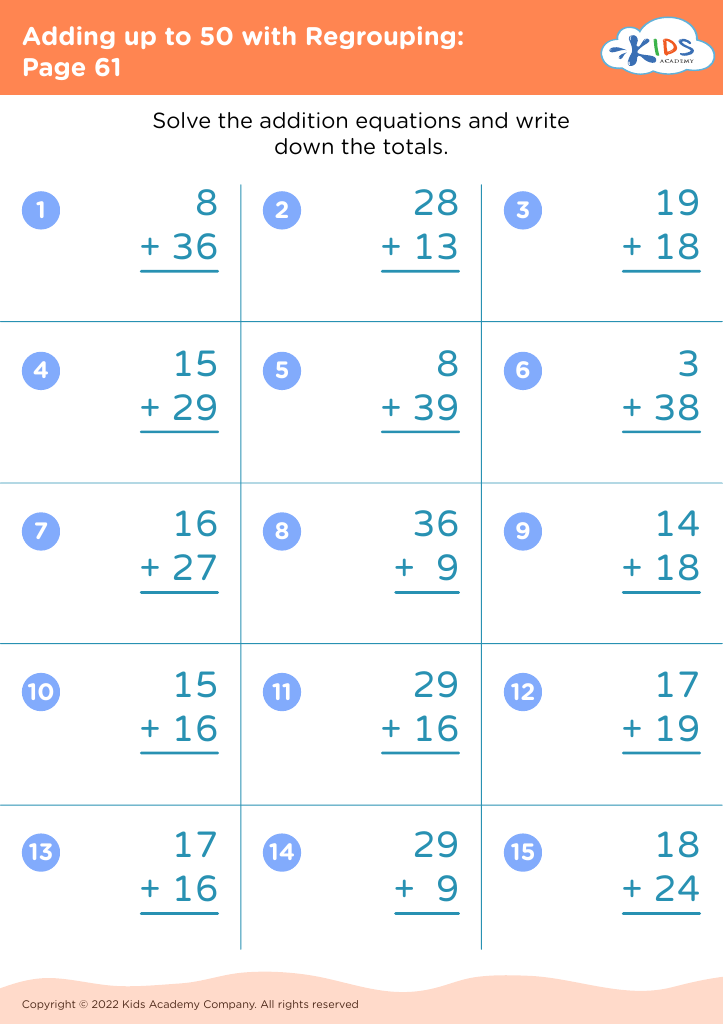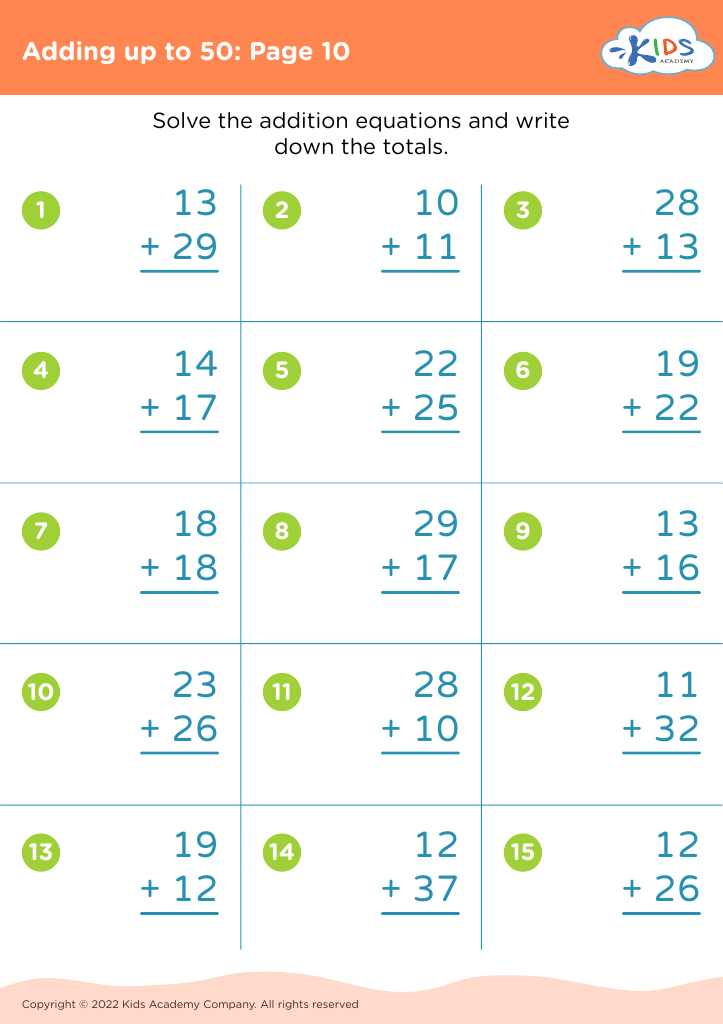Develop critical thinking Adding up to 50 Worksheets for Ages 7-9
3 filtered results
-
From - To
Enhance your children's critical thinking skills with our "Adding Up to 50" worksheets designed for ages 7-9. This engaging collection features 50 printable worksheets that not only focus on addition but also encourage analytical thinking and problem-solving. Students will explore various math concepts through challenging puzzles, real-life scenarios, and interactive exercises. By tackling these thoughtfully designed tasks, children will develop confidence in their math abilities and improve their overall academic performance. Perfect for classroom use or at-home learning, these worksheets will make math an enjoyable and rewarding experience while cultivating essential critical thinking skills. Start your child's journey toward math mastery today!
Developing critical thinking skills in children aged 7-9 is essential for their intellectual growth and future success. At this age, children's cognitive abilities are rapidly developing, making them more capable of analyzing information and forming reasoned judgments. Encouraging critical thinking equips them with the tools to tackle complex problems, make informed decisions, and understand different perspectives.
By fostering critical thinking, parents and teachers help children cultivate curiosity and a love for learning. Engaging them in discussions that require reflection and evaluation encourages independence and boosts confidence. Activities like problem-solving games, asking open-ended questions, and promoting inquiry-based learning stimulate their minds, making learning more enjoyable and effective.
Moreover, these skills are vital in a world overflowing with information and misinformation. Critical thinking enables children to sift through data, discern credible sources, and develop their own informed opinions. This is particularly important in our digital age, where understanding context and reliability is crucial.
Ultimately, investing in critical thinking not only enhances a child’s academic performance but also prepares them to navigate the complexities of life, interact constructively with others, and contribute positively to society. It sets the foundation for responsible, thoughtful adulthood.















